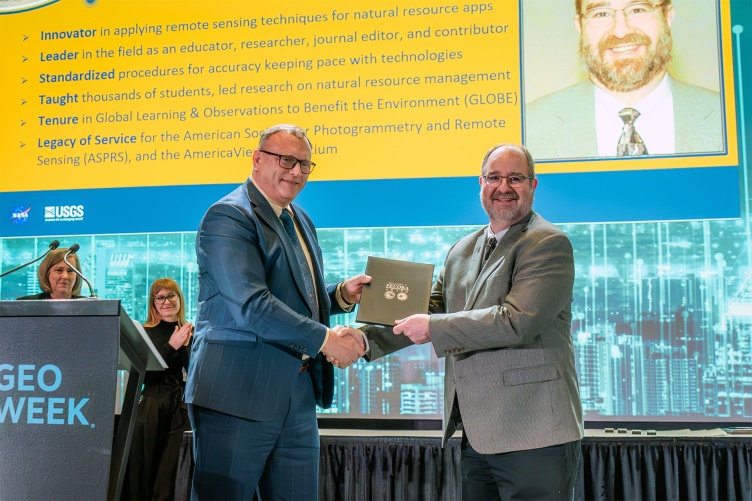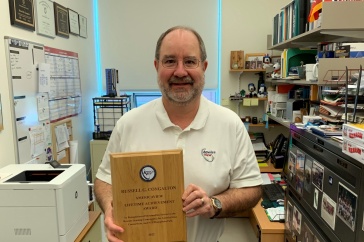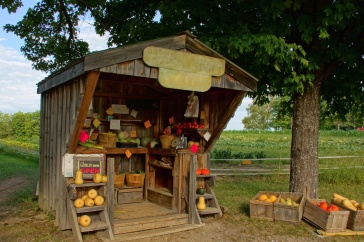
UNH professor Russ Congalton (right) receives the Pecora Award from Tim Glynn, the Chief of Staff of the U.S. Geological Survey's Earth Resources and Observation Science (EROS) Center, during the 2024 Geo Week conference held in Denver, CO.
Each year, the U.S. Geological Survey (USGS) and the National Aeronautics and Space Administration (NASA) recognize the contributions of satellite or aerial remote sensing innovators with a distinct honor – the William T. Pecora Award. This year, Russ Congalton, a professor of natural resources and the environment with UNH’s College of Life Sciences and Agriculture, was one of two receipts of the 2023 Pecora Award, recognizing Congalton’s 45-year-career in remote sensing.
“Remote sensing plays a pivotal role in mapping and monitoring our planet,” said Congalton. “And without these technologies, it would be impossible to monitor changes to our forests from deforestation, fire, pests and pathogens, climate change, and other natural disasters. The information we gain from remotely sensed data allows us to more effectively and efficiently manage our natural resources.”
Congalton’s contributions to the remote sensing community span from the earliest days of the Landsat program through the beginning of commercial Earth observation ventures, to the latest research in Light Detection and Ranging (LiDar) sensor use via unpiloted aerial systems (UAS), or drones. More than 30 years ago, while at the University of California, Berkeley, Congalton authored a foundational remote sensing paper, “A Review of Assessing the Accuracy of Classifications of Remotely Sensed Data” – a paper that has influenced subsequent generations of remote sensing scholars and has received more than 9,850 citations to date. Congalton has also served in leadership roles with the Global Learning and Observations to Benefit the Environment (GLOBE) program, the American Society for Photogrammetry and Remote Sensing (ASPRS), and the AmericaView consortium.
Congalton adds, “It has been a pleasure to introduce thousands of students to the fields of remote sensing and geospatial technologies. These are skills that are crucial to all natural resource and environmental science students in today’s world, and I have learned so much from the over 65 graduate students that I have mentored and taken so much joy in seeing their amazing successes.”
“I had some fantastic and caring professors and mentors throughout my education and career and I am so pleased to be able to give back what was so generously provided to me.”
Established in 1974 in honor of the memory of William T. Pecora, former Director of the U.S. Geological Survey and Under Secretary for the Department of Interior, the William T. Pecora Award is presented annually to individuals or teams that have made influencing and impactful contributions toward understanding Earth’s land, oceans and air through the use of satellite or aerial remote sensing. Pecora played an instrumental role in the establishment of a civil remote sensing program, which then paved the way for the creation of the Landsat satellite initiative. The award is given jointly by NASA and the Department of Interior’s USGS.
Want to learn more about the research of Russ Congalton? Visit the Basic and Applied Spatial Analysis Lab (BASAL) website.
-
Written By:
Nicholas Gosling '06 | COLSA/NH Agricultural Experiment Station | nicholas.gosling@unh.edu



















































